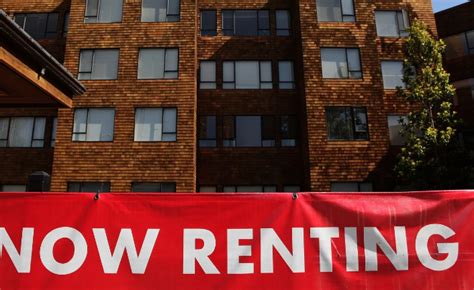When pondering the complexity of the U.S. rental market, it’s tempting to lay the blame on a single entity for the soaring prices many renters face today. Recently, the company RealPage has come under scrutiny, with allegations that its software might be facilitating rent price manipulation. To understand the real impact, one must delve deeply into the factors influencing this contentious issue and ask: is it truly fair to pin the blame on just one player?
Many argue that the bulk of the rental price increases predominantly boils down to basic economic principles—namely, supply and demand. As pointed out by various commenters, housing supply is fundamentally constrained in many urban areas due to stringent zoning laws and other regulatory measures. These restrictions are often enthusiastically supported by locals who, having secured their piece of the housing market pie, vote to implement regulations that deter the construction of new housing. This phenomenon was likened to immigration rules, where early immigrants often support stricter regulations to protect their status.
It’s also essential to consider the role local regulations play in exacerbating this housing supply issue. Cities like San Francisco and New York are famed for their stringent construction codes and zoning laws, making new constructions arduous and costly. These regulations might ostensibly be in place for safety and maintaining community character, but they concurrently limit new housing developments, driving up prices for existing units. Interestingly, some commenters have pointed out that renting is often cheaper than owning in such markets, further complicating the landscape.
Amidst these regulatory constraints, companies like RealPage introduce technology to optimize rent-setting. Critics accuse RealPage of enabling landlords to achieve price-fixing through its algorithmic pricing tool. While RealPage provides a methodical approach to setting rental rates, some argue it fosters an environment where landlords can collude without direct communication, effectively setting higher rents across the board. For example, if landlords agree not to lease below a certain threshold set by RealPage’s algorithm, this could artificially elevate rental prices even when market conditions might not otherwise support such hikes.
However, it’s crucial to dissect whether these practices fundamentally disrupt the conventional supply-demand dynamics. Let’s imagine if RealPage truly cornered the market. With about 80% of Atlanta’s rentals reportedly using this platform, would dominating landlords be able to charge exorbitant LA-style rents in an entirely different economic environment? Most would argue that while these tools might push rents slightly higher, a dramatic overhaul of market rates remains infeasible given the geographic and economic nuances inherent in individual cities.
There’s an essential caveat to monopolistic behavior highlighted by economists: monopolies set prices by balancing marginal costs and marginal revenue, not merely flatly ignoring the demand curve. Thus, while RealPage’s algorithmic pricing might amplify efficiency in rent-setting, it’s unlikely to uproot fundamental market forces entirely. One commenter aptly argued that
The notion of ‘collusion-as-a-service’ presented by RealPage raises ethical and potentially legal questions. If landlords leverage these tools to hike rates uniformly, it could violate antitrust laws. However, demonstrating direct causality between RealPage’s algorithms and illegal price-fixing poses a challenge. It’s not sufficient to claim higher rents; there needs to be concrete evidence of collusion facilitated by these digital tools. Interestingly, one can draw parallels to other monopolistic practices in different industries where information symmetry plays a critical role.
It’s worth noting that pointing fingers at RealPage oversimplifies a multi-faceted crisis. Undoubtedly, the lack of affordable housing is rooted in more than just pricing tools and potentially unethical landlord behaviors. Local NIMBY (Not In My Backyard) sentiments, restrictive zoning laws, and the financialization of housing as an investment commodity all contribute significantly. The focus should be broader, addressing root causes such as increasing housing supply and loosening regulation constraints.
Ultimately, while RealPage’s practices warrant scrutiny, solving the housing crisis requires a more nuanced and holistic approach. It’s about overcoming local resistance to new housing developments, reevaluating urban planning policies, and perhaps shifting the perspective of housing from a mere financial asset to a fundamental human need. If the public and policymakers don’t tackle these broader issues, simply vilifying a single company becomes an exercise in futility, much like treating a symptom rather than curing the disease.


Leave a Reply